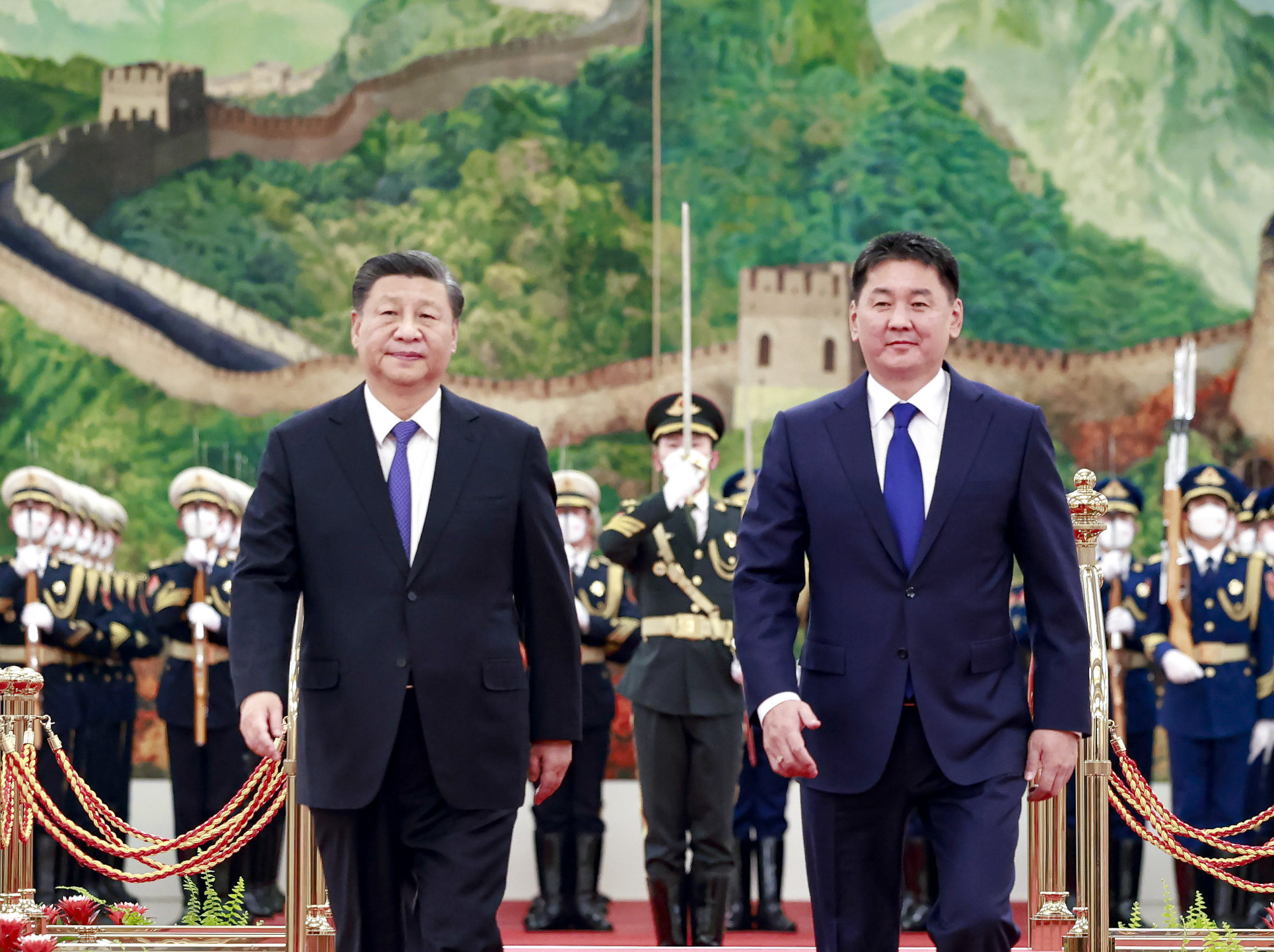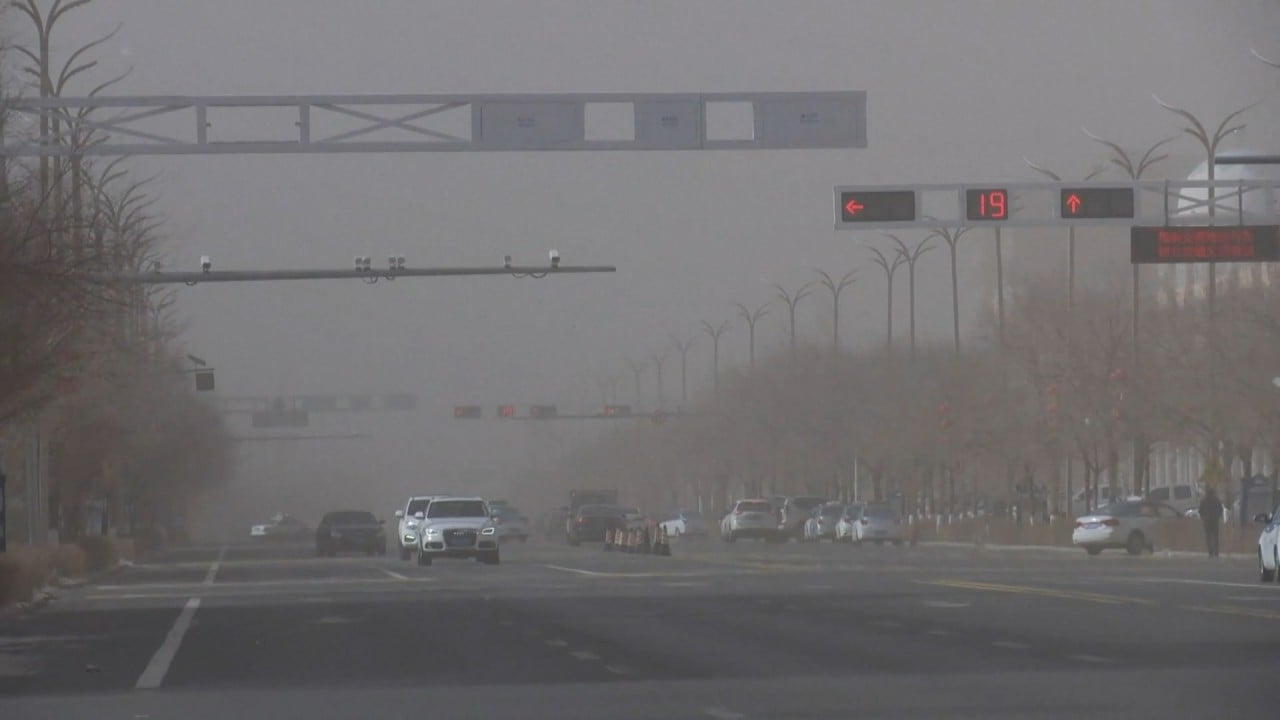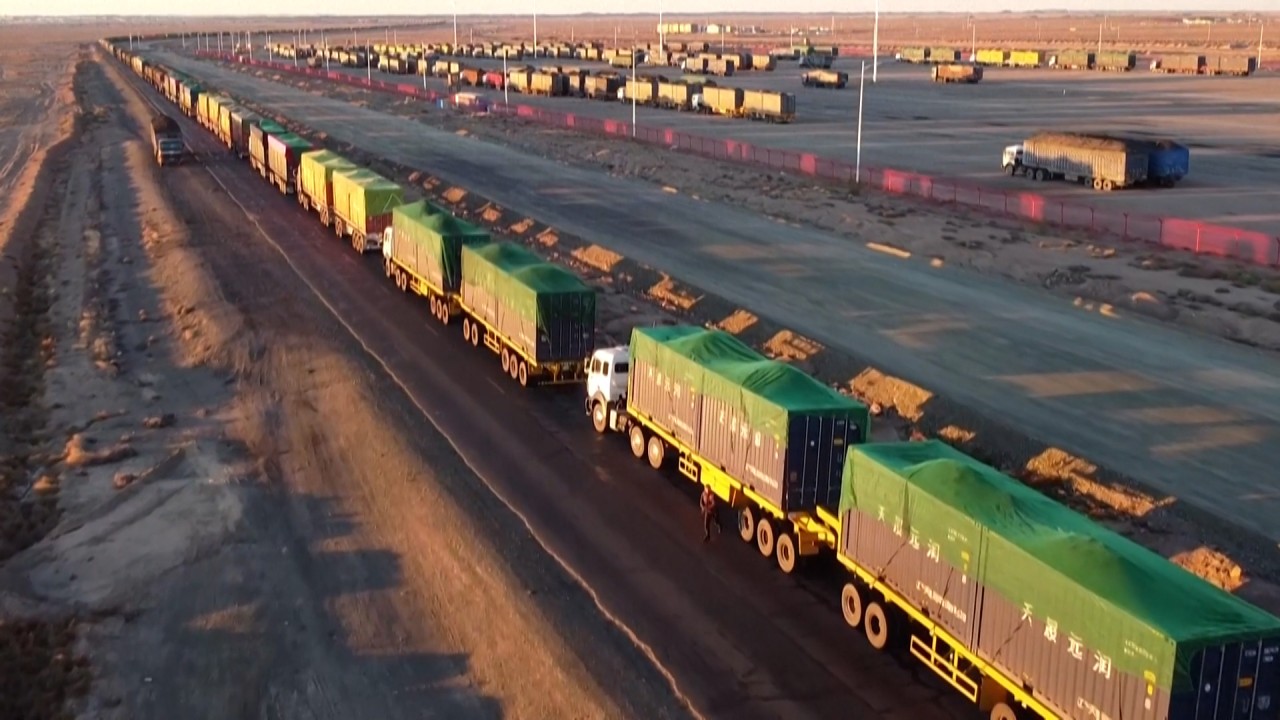
China pledges closer ties with Mongolia on trade, train links, tackling sandstorms
- China and Mongolia are ‘good friends and good partners’, Chinese Foreign Minister Qin Gang says, pledging to promote belt and road strategy
- Some 90 per cent of China-Russia freight passes through Mongolia, and a tri-nation economic corridor is a key segment of Beijing’s belt and road plan
The pledge comes as China seeks to diversify its trade routes and boost ties with Russia via its landlocked northern neighbour. Ulaanbaatar also plays a pivotal role in a joint 2016 plan to develop the China-Russia-Mongolia economic corridor, a key segment of Beijing’s belt and road strategy.

Qin told Battsetseg that China would further enhance mutual political trust with Mongolia and “pursue mutual support on issues concerning each other’s core interests and major concerns”.
He also highlighted bilateral cooperation on mining and interconnectivity towards building “a China-Mongolia community with a shared future”, according to an official Chinese readout.
Battsetseg expressed support for Beijing on Taiwan, Hong Kong and Xinjiang, saying they related to its “internal affairs”, the Chinese readout said. She also hailed China’s recent series of foreign policy documents, including last year’s Global Security Initiative.
“Mongolia is willing to deepen mutual political trust and expand practical cooperation with China, and make bilateral ties a model for the region,” Battsetseg, who wrapped up a two-day visit to Beijing on Tuesday, was quoted as saying.
China cosies up to Mongolia to ‘facilitate’ Russia trade, secure resources
The two sides also agreed to strengthen cooperation on the prevention and control of sandstorms.
Sandstorms originating in the Gobi Desert, which straddles northern China and southern Mongolia, are a regular feature in the spring and send pollution levels soaring in the region. But their frequency and intensity have increased in recent years.
According to the Mongolian foreign ministry, a joint research team would be deployed in Beijing and Ulaanbaatar over May and June to study how to tackle sandstorms caused by worsening desertification in Mongolia and some parts of northern China.
The two foreign ministers also touched upon a list of planned cooperation projects, mostly related to upgrading Mongolia’s outdated rail links, as agreed upon during Mongolian President Ukhnaagiin Khurelsukh’s state visit to China in November.

China buys up to 95 per cent of Mongolian exports, mostly coal, copper and other minerals. Bilateral trade volume crossed US$9 billion in 2021, up by more than 35 per cent from the previous year, according to China’s Ministry of Commerce.
Around 90 per cent of freight transport between China and Russia passes through Mongolia, according to the Organisation for Economic Cooperation and Development.
Improved railway systems and other infrastructure in Mongolia – such as under the tri-nation belt and road economic corridor – are also expected to help boost trade links between China and Russia, as Moscow grapples with Western sanctions imposed after its invasion of Ukraine.
China protests against ‘illegal’ US sanctions on firms dealing with Russia
According to the Mongolian readout, Battsetseg urged China to help speed up the construction of a railway at the Gashuunsukhait-Gantsmod border checkpoint, which handles over half of Mongolia’s copper and coking coal exports.
She also called on China to renew a 1955 bilateral agreement on border railway crossings – something Beijing has repeatedly pledged to do since Xi’s 2014 state visit to Ulaanbaatar – and help ensure stable exports of mining and agricultural products so that annual bilateral trade could rise to US$20 billion.
Mongolia has also pinned its hopes on China to help tap its potential in the renewable energy sector, such as solar and wind power.
However, neither side mentioned the new China-Mongolia-Russia natural gas pipeline project, dubbed the “Power of Siberia 2”. China and Russia agreed to “promote studies and consultations” on the project during Xi’s visit to Moscow in March.
Both Ulaanbaatar and Moscow have high hopes for the mega project, with Russian officials expecting it to replace the Europe-bound Nord Stream 2, which has been put on hold due to the Ukraine war.
More ‘studies, consultations’ needed in Russia’s pipeline plans with China
In a delicate balancing act, Mongolia has avoided openly condemning Moscow for its invasion of Ukraine, and sought close economic ties with both giant neighbours China and Russia, while seeking constructive ties under its “third neighbours” foreign policy with countries including the United States, Japan and European Union members.



